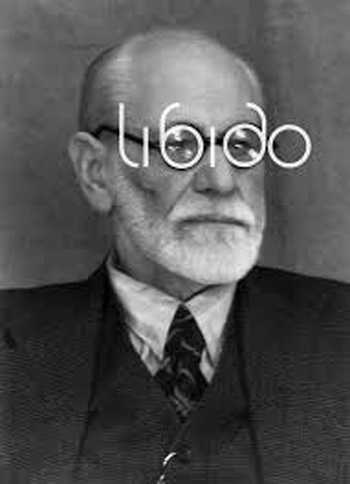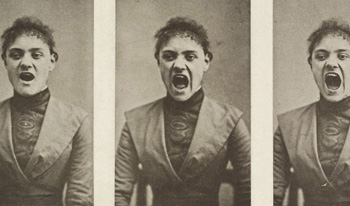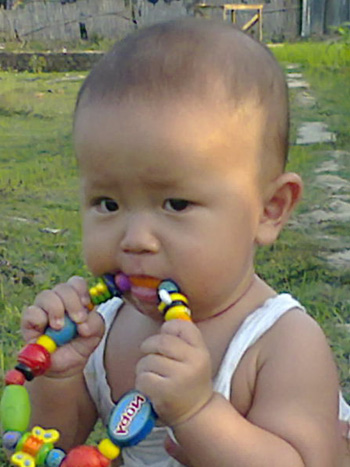Personalities
 |
 |
 |
 |
 |
 |
 |
Sigmund Freud & Catholic Morals
Sigmund Schlomo Freud was born on May 6, 1856 in the city of Freiiber-im-Mähren near Vienna in the great Austrian-Hungarian Empire that was his homeland. He died in London, where he moved on September 23, 1939, due to the Nazi persecutions against Jews.
 Although an intelligent man, as his biographers reveal, he had a horror of philosophy, which he considered a deviation from the eminently “scientific” field he wanted to enter. Indeed, being a typical 19th century thinker, he was very influenced by the positivist doctrine and its supposed “scientific” grounding.
Although an intelligent man, as his biographers reveal, he had a horror of philosophy, which he considered a deviation from the eminently “scientific” field he wanted to enter. Indeed, being a typical 19th century thinker, he was very influenced by the positivist doctrine and its supposed “scientific” grounding.
He studied medicine and specialized in Neurology. It should be noticed that Freud has never been a psychologist or a psychiatrist, but a neurologist.
At around 1892, Freud became interested by the clinical phenomena of female hysteria, a very common disorder among ladies of European society at that time.
This so-called “conversion disorder” is a sickness that manifests itself by emotional crises; common symptoms include fainting, bodily agitation, an accelerated heart beat and compulsive weeping. This syndrome principally affects women.
A feminine disease
Initially, Freud tried a new type of hypnosis to treat this disorder in his clinical work. He reached some positive results with some improvement of his patients. Soon it became clear, however, that hypnosis was an uneven method, since many nervous symptoms would return after his “talking cures.” Moreover, not everyone can respond to this technique, since not everyone can be hypnotized.
 Dissatisfied with his results, Freud tried to reach a deeper understanding of that phenomenon by developing new theories about the origins of mental diseases, mainly neuroses.
From here onward, his work took on new dimensions, entering the realm of morals. Yes, morality, since Freud postulated and gradually established that the origin of both female and male neuroses was always sexuality. Freud stated that the “basic energy” driving the psyche is sex.
Dissatisfied with his results, Freud tried to reach a deeper understanding of that phenomenon by developing new theories about the origins of mental diseases, mainly neuroses.
From here onward, his work took on new dimensions, entering the realm of morals. Yes, morality, since Freud postulated and gradually established that the origin of both female and male neuroses was always sexuality. Freud stated that the “basic energy” driving the psyche is sex.
For the Austrian psychoanalyst, it is sexual desire - either repressed or overexerted - that ultimately governs all the actions of human civilization. For him, man is nothing but a sexual animal that projects this sexuality to more rational ends. This is, then, the only difference between men and irrational animals, nothing else.
Here it should be noted that while Freud came from a religious Jewish family, he adhered to a strict atheism his whole life.
For him, man was nothing but an ensemble of nerves, muscles and bones. He believed that all human functions took place in the brain, including reasoning, sentiments and sublime emotions. In Freud’s theory there is no space for the immaterial, the spiritual or the religious.
From its beginning, a strong opposition existed between this theory and the Catholic Religion, since Freud reduced everything to matter. No soul, no spirituality, no eternal life. Death destroys everything and nothing of the essential survives in man.
Infantile development
The crucial point for our study, without a doubt, is his theory on child development. Freud stated that the first love of the child is his own mother.
Let me go on here to explain these Freudian concepts.
As noted above, the psychology developed by Freud is based on “sexual energy.” Yes, for the Austrian neurologist, the basic energy of every human being is sex.
Consequently, the natural acts of thinking, willing and sensing, as well as the other acts of human psyche, all arise from this instinctive force. Basically, man is a being who desires corporal pleasure and, for him, the greater bodily pleasure is that coming from sexual relationships.
All the cultures and civilizations men developed throughout the millennia are nothing but the sublimation of these basic instinctive sexual energies.
‘The mother is the first object of the child’s sexual desire’
One of the Freudian principles is that the human being passes through three distinct phases in his psycholocial-emotional development. They are the so-called “phases oral, anal and genital,” which have all sexual connotations.
 In this article I will analyze the so-called “oral phase.”
In this article I will analyze the so-called “oral phase.”
It is known that babies tend to put objects in their mouths. It is through their mouths, so to speak, that babies ‘feel’ the world surrounding them.
Freud interpreted this as the first development of sexuality in a child.
Given that the principal – and sometimes the only – nourishment of the baby is the mother’s breast, Freud concluded that the baby sexually desires his own mother. This would be one of the sexual phases of the development of the child’s psyche.
“The mother is the first object of the child’s desire,” affirmed Freud.
The consequences of this idea were devastating for traditional Catholic Morals and the formation of children.
In a few years, principally after World War One, the way that psychoanalysis viewed babies and their world changed drastically.
This theory found many opponents in Austria and in Europe. Hundreds of scholars in the Old Word rose up in arms against that new and extravagant idea. Notwithstanding, in a world already in severe moral decadence, the ideas of Freud prospered and gained in popularity. The revolutionary process that had struck Christian Civilization was already far advanced.
Protestantism had made strong inroads in Northern Europe, and Marxist ideas had also taken by storm a considerable segment of the intellectuals in Europe. Materialist and positivist philosophies were the rage in the academic world at that time.
 It was not difficult for psychoanalysis to infiltrate that environment and develop.
It was not difficult for psychoanalysis to infiltrate that environment and develop.
It is curious to note that today psychoanalysis is more successful in the “academic culture” than as a therapeutic method, properly speaking. In the universities psychoanalysis is still discussed, but in the clinics it has been left aside. Other methods of clinical therapy that do not ignore the importance of religion in man’s life have gained acceptance and have proven more efficient in treatment of disorders than psychoanalysis.
But psychoanalysis still survives in Academia. Today the danger for our Catholic youth dwells in the universities. In fact, there they are relentlessly attacked by all sorts of atheist, materialist and sexual theories, such as those of Freud.
It is the duty of parents and educators to be aware of these sad realities in our universities. Catholic parents and educators need to be conscious of the Revolution in every arena of life, including Psychology.
Continued


Freud's obsession: the driving energy of mankind is sexual
He studied medicine and specialized in Neurology. It should be noticed that Freud has never been a psychologist or a psychiatrist, but a neurologist.
At around 1892, Freud became interested by the clinical phenomena of female hysteria, a very common disorder among ladies of European society at that time.
This so-called “conversion disorder” is a sickness that manifests itself by emotional crises; common symptoms include fainting, bodily agitation, an accelerated heart beat and compulsive weeping. This syndrome principally affects women.
A feminine disease
Initially, Freud tried a new type of hypnosis to treat this disorder in his clinical work. He reached some positive results with some improvement of his patients. Soon it became clear, however, that hypnosis was an uneven method, since many nervous symptoms would return after his “talking cures.” Moreover, not everyone can respond to this technique, since not everyone can be hypnotized.

A false solution for female hysteria
For the Austrian psychoanalyst, it is sexual desire - either repressed or overexerted - that ultimately governs all the actions of human civilization. For him, man is nothing but a sexual animal that projects this sexuality to more rational ends. This is, then, the only difference between men and irrational animals, nothing else.
Here it should be noted that while Freud came from a religious Jewish family, he adhered to a strict atheism his whole life.
For him, man was nothing but an ensemble of nerves, muscles and bones. He believed that all human functions took place in the brain, including reasoning, sentiments and sublime emotions. In Freud’s theory there is no space for the immaterial, the spiritual or the religious.
From its beginning, a strong opposition existed between this theory and the Catholic Religion, since Freud reduced everything to matter. No soul, no spirituality, no eternal life. Death destroys everything and nothing of the essential survives in man.
Infantile development
The crucial point for our study, without a doubt, is his theory on child development. Freud stated that the first love of the child is his own mother.
Let me go on here to explain these Freudian concepts.
As noted above, the psychology developed by Freud is based on “sexual energy.” Yes, for the Austrian neurologist, the basic energy of every human being is sex.
Consequently, the natural acts of thinking, willing and sensing, as well as the other acts of human psyche, all arise from this instinctive force. Basically, man is a being who desires corporal pleasure and, for him, the greater bodily pleasure is that coming from sexual relationships.
All the cultures and civilizations men developed throughout the millennia are nothing but the sublimation of these basic instinctive sexual energies.
‘The mother is the first object of the child’s sexual desire’
One of the Freudian principles is that the human being passes through three distinct phases in his psycholocial-emotional development. They are the so-called “phases oral, anal and genital,” which have all sexual connotations.

The innocent tendency of the baby to bring objects to his mouth is wrongly considered a desire of incest
It is known that babies tend to put objects in their mouths. It is through their mouths, so to speak, that babies ‘feel’ the world surrounding them.
Freud interpreted this as the first development of sexuality in a child.
Given that the principal – and sometimes the only – nourishment of the baby is the mother’s breast, Freud concluded that the baby sexually desires his own mother. This would be one of the sexual phases of the development of the child’s psyche.
“The mother is the first object of the child’s desire,” affirmed Freud.
The consequences of this idea were devastating for traditional Catholic Morals and the formation of children.
In a few years, principally after World War One, the way that psychoanalysis viewed babies and their world changed drastically.
This theory found many opponents in Austria and in Europe. Hundreds of scholars in the Old Word rose up in arms against that new and extravagant idea. Notwithstanding, in a world already in severe moral decadence, the ideas of Freud prospered and gained in popularity. The revolutionary process that had struck Christian Civilization was already far advanced.
Protestantism had made strong inroads in Northern Europe, and Marxist ideas had also taken by storm a considerable segment of the intellectuals in Europe. Materialist and positivist philosophies were the rage in the academic world at that time.

Freud is increasingly less popular - above Boston Graduate School of Psychoanalysis
It is curious to note that today psychoanalysis is more successful in the “academic culture” than as a therapeutic method, properly speaking. In the universities psychoanalysis is still discussed, but in the clinics it has been left aside. Other methods of clinical therapy that do not ignore the importance of religion in man’s life have gained acceptance and have proven more efficient in treatment of disorders than psychoanalysis.
But psychoanalysis still survives in Academia. Today the danger for our Catholic youth dwells in the universities. In fact, there they are relentlessly attacked by all sorts of atheist, materialist and sexual theories, such as those of Freud.
It is the duty of parents and educators to be aware of these sad realities in our universities. Catholic parents and educators need to be conscious of the Revolution in every arena of life, including Psychology.
Continued

Posted July 22, 2019
______________________
______________________





